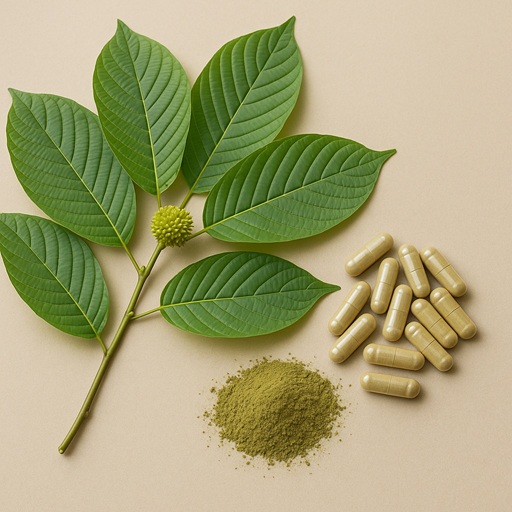The popularity of Feel Free a kava and kratom-based wellness drink, has grown rapidly across the United States. Marketed as a “botanical tonic” that boosts mood, focus, and relaxation, Feel Free has attracted both health enthusiasts and controversy. But if you live in California or plan to visit, you might wonder: Is Feel Free actually legal in the California?
Let’s break down what Feel Free is, how California kratom law treats its key ingredients, and what recent updates mean for consumers and retailers.
What Is Feel Free?
Feel Free is a beverage produced by Botanic Tonics, containing a blend of kava (Piper methysticum) and kratom (Mitragyna speciosa). Kava is a plant native to the South Pacific known for its calming, anxiolytic properties. Kratom, on the other hand, originates from Southeast Asia and contains alkaloids that act on opioid and adrenergic receptors, producing both stimulant and sedative effects depending on the dose.
While marketed as a “wellness” alternative to alcohol or caffeine, Feel Free’s inclusion of kratom a controversial ingredient, has sparked regulatory scrutiny across several U.S. states. The drink’s effects can range from mild euphoria and increased focus to relaxation and pain relief. However, concerns over kratom’s safety, potential for dependence, and unregulated status have led to patchwork legality across the country.
Kratom’s Legal Status of Feel Free in California
As of October 2025, kratom remains legal statewide in California, but with one important exception: San Diego.
In 2016, the San Diego City Council passed an ordinance banning the sale, possession, and use of kratom within city limits. This means that products like Feel Free cannot be legally sold or consumed in San Diego. However, outside of San Diego, including Los Angeles, San Francisco, Sacramento, and most other parts of California, kratom and kratom-containing products remain legal to buy, sell, and possess for adults.
That said, California has no comprehensive state-level kratom regulation, meaning quality control, labeling, and purity standards vary widely between vendors. Consumers should exercise caution and purchase from reputable brands that provide lab-tested ingredients and full transparency about their sourcing.
Kava’s Legal Status in California
Unlike kratom, kava is fully legal throughout California. It’s commonly sold in health stores, cafes, and online as a relaxation aid or stress-relief supplement. The FDA has issued past advisories regarding high doses of kava and potential liver toxicity, but moderate use in beverages like Feel Free is not restricted or prohibited under state or federal law.
This means that Feel Free’s kava content poses no legal concern; the controversy centers solely on its kratom content.
Why the Controversy Exists
The legal and health debate surrounding Feel Free largely mirrors the broader national kratom controversy. Kratom is not approved by the FDA for any medical use, and the agency has repeatedly warned of contamination risks, addiction potential, and inconsistent alkaloid concentrations in commercial kratom products.
Supporters argue that kratom can serve as a natural alternative for pain relief, anxiety management, and even opioid withdrawal, while opponents raise concerns about misuse and lack of regulation. Because of this, states like Indiana, Arkansas, and Alabama have imposed full bans, while others, including Florida and California, have left legality to local jurisdictions.
Federal Oversight and Industry Pushback
At the federal level, kratom is not classified as a controlled substance, though the DEA has previously considered listing its active compounds (mitragynine and 7-hydroxymitragynine) under Schedule I. The American Kratom Association (AKA) has since advocated for the Kratom Consumer Protection Act (KCPA), which aims to set national safety standards without criminalizing use.
California has not adopted a statewide version of the KCPA, but ongoing public health discussions could shape future regulations for kratom and beverages like Feel Free. In the meantime, retailers can legally sell Feel Free throughout most of the state, provided they comply with age verification and labeling requirements where applicable.
What California Consumers Should Know
If you live in California and are considering trying Feel Free, here are key takeaways:
- Legal Statewide (Except San Diego): You can buy, sell, or use Feel Free in California, but not within San Diego city limits.
- Check for Lab Testing: Always purchase from sources that offer third-party lab verification for purity and alkaloid content.
- Avoid Mixing with Alcohol or Drugs: Combining kratom-based beverages with other depressants or stimulants can amplify risks.
- Stay Updated: Kratom laws are evolving, and California could introduce statewide regulations in the future.
The Bottom Line
As of October 2025, Feel Free is legal in California except in San Diego, where kratom is banned. Consumers elsewhere in the state can legally purchase and use the drink, though regulatory uncertainty remains. Anyone considering Feel Free should stay informed about evolving legislation, use responsibly, and prioritize products with transparent sourcing and lab-tested safety data.

